
Posted
I don't know anything about jazz. Nevertheless, to study Synfire I tried to experiment with a progression of four chords and a randomly drawn melody using the Pencil tool. I deleted a couple of notes and raised the group of the last six notes to move the climax to the end of the phrase. Total duration, approximately one minute. I think this program has a future ahead of itself...
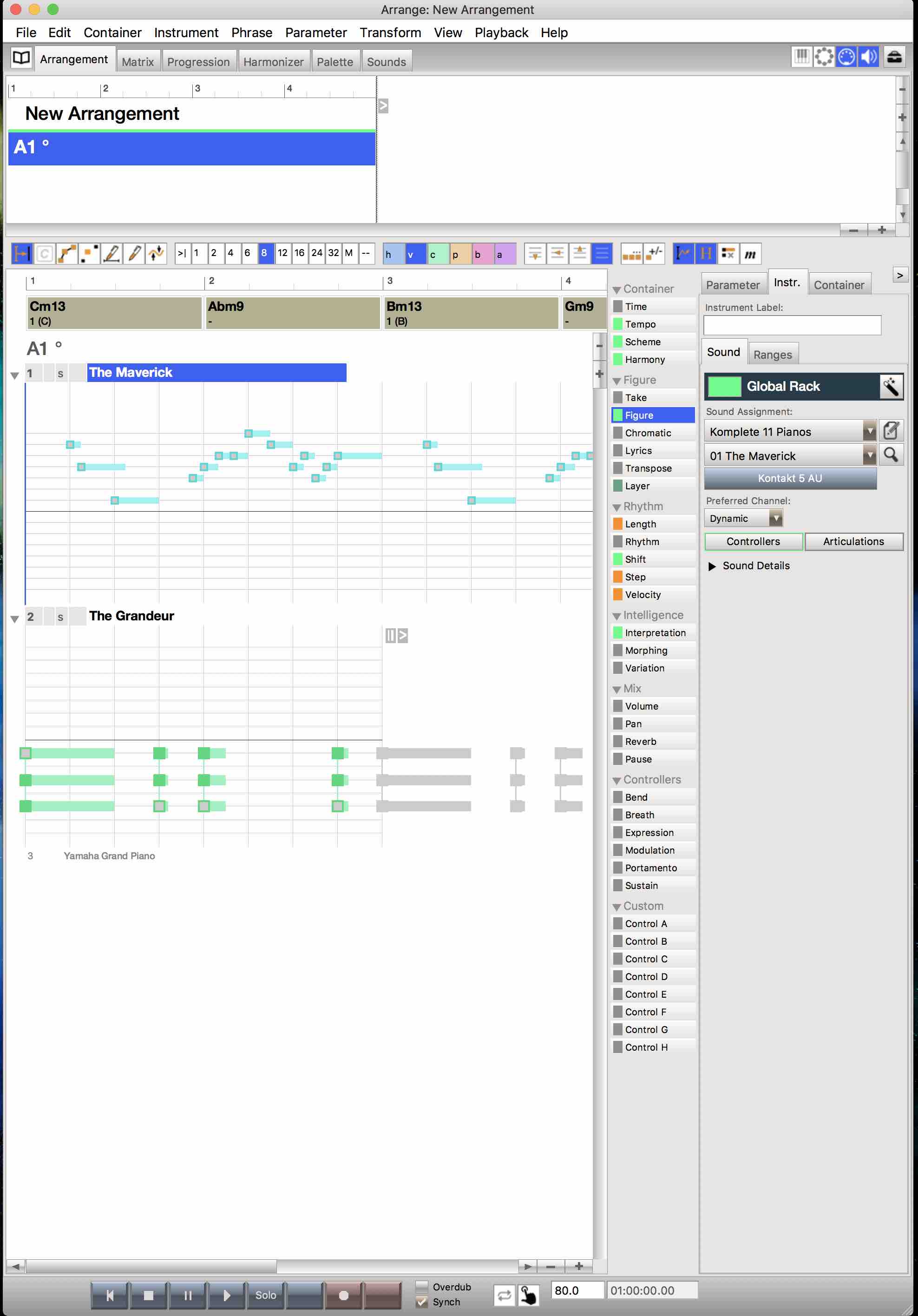
new_arrangement_64bit__0.mp3
Sa., 28.10.2017 - 10:39 Permalink
Oh, I forgot to specify that I inserted a Shift preset, too: it lovely humanized my virtual pianist :-)
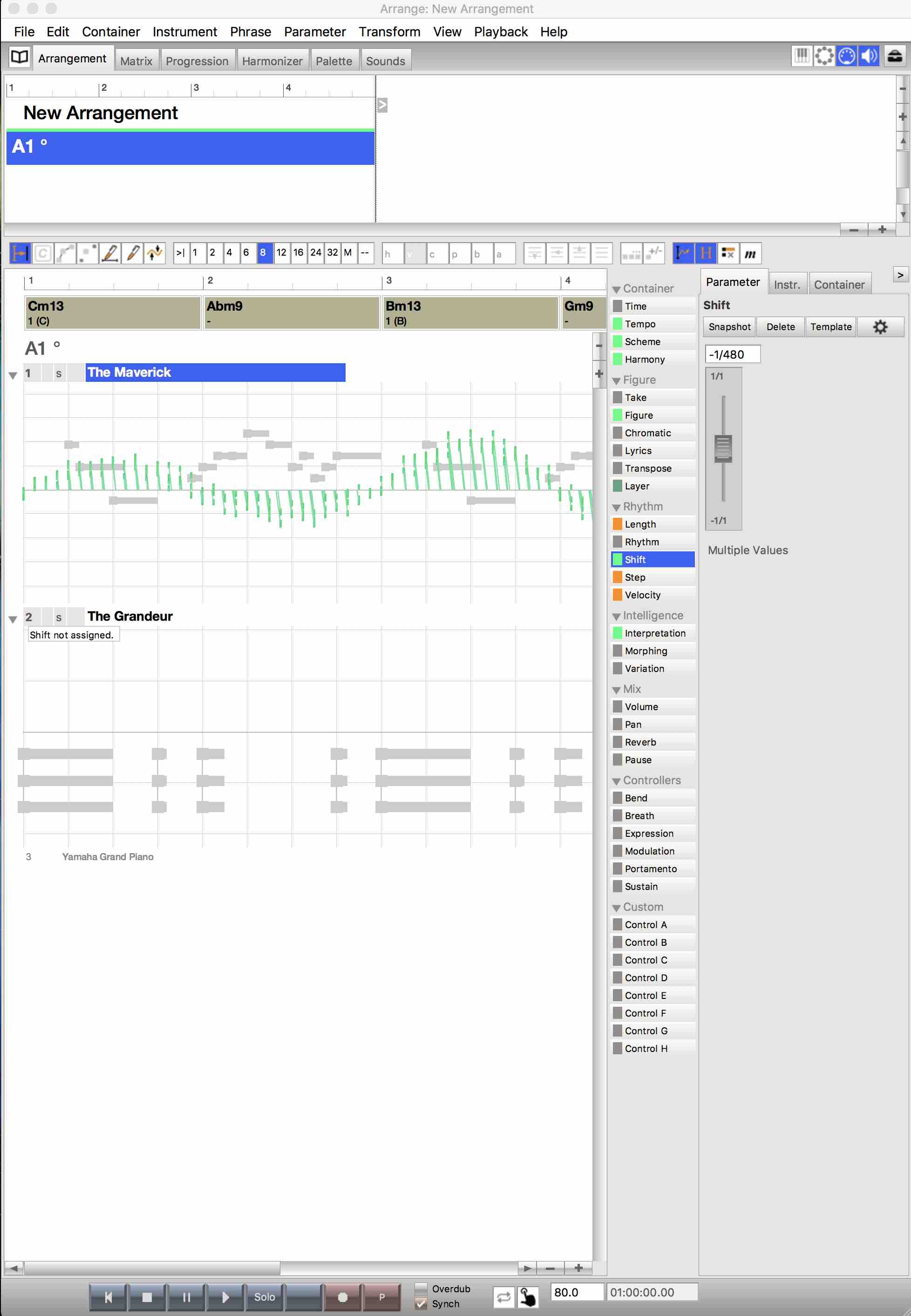
Sa., 28.10.2017 - 10:43 Permalink
EDIT II: the chords were generated by Synfire with Auto-Chords.
Sa., 28.10.2017 - 13:17 Permalink
The Cm13 chord is a 7note chord..did you chance to a 3 note chord or do i miss something?
If you drop the harmony parameter on the figure parameter of track 2 ..how does it sounds now
Sa., 28.10.2017 - 13:26 Permalink
There are all the Cm13 notes indeed. I checked the Completion flag in Interpretation inspector, and Synfire completed the chord even with three written notes only.
I attach the .cognac file to this reply. I have used two pianos from NI Komplete: if you do not have them, Synfire should replace them automatically with the built-in Yamaha.
_Roberto
Sa., 28.10.2017 - 13:56 Permalink
Ah.. i see thanks
Sa., 28.10.2017 - 14:02 Permalink
Anyway, the basic workflow was:
- draw a simple 2-bars rhythm in Notion and export it as MIDI file

- import the MIDI file in Synfire as static (percussion) pitches
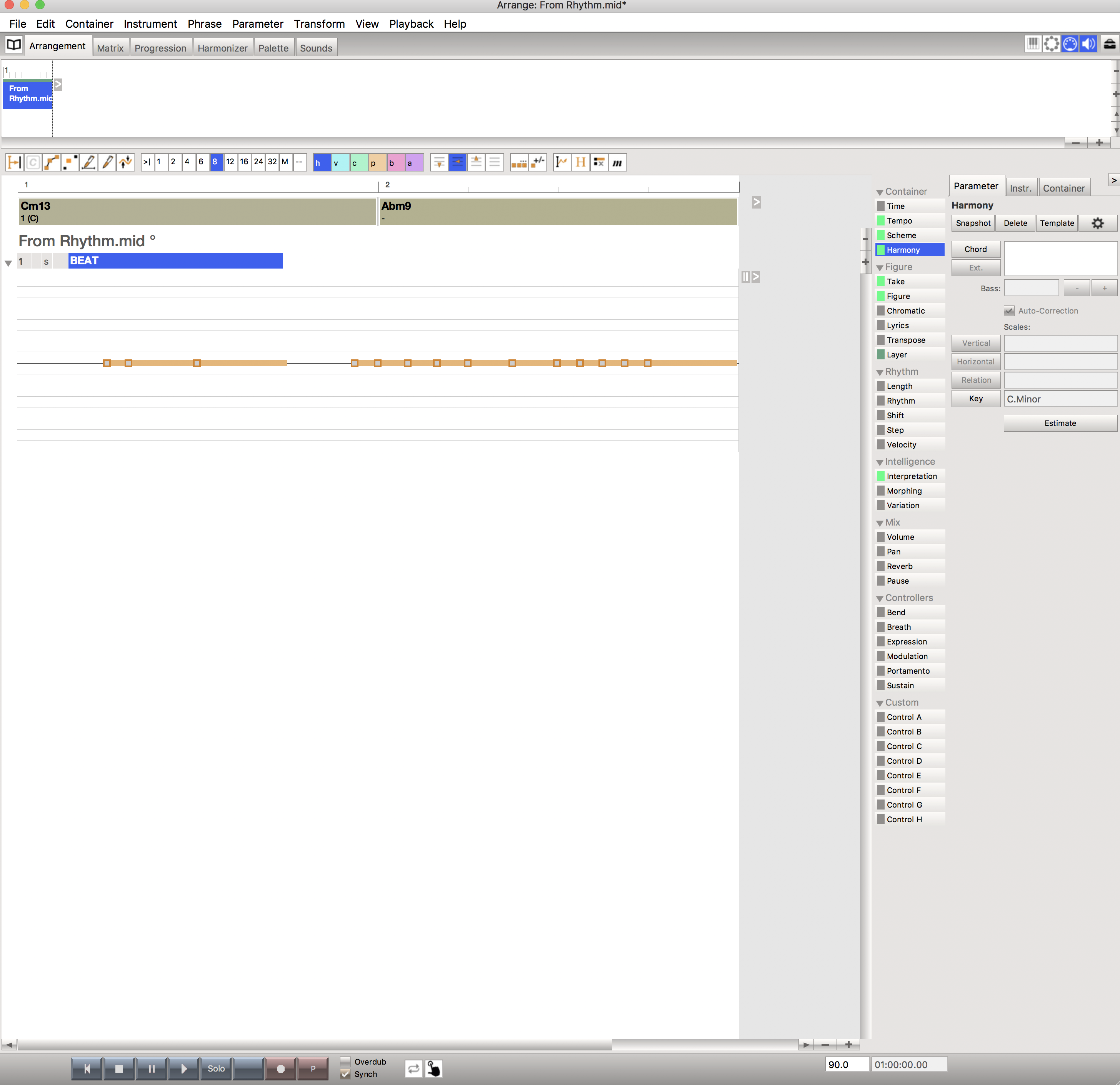
- draw an approximated melodic line using the Gestalt tool
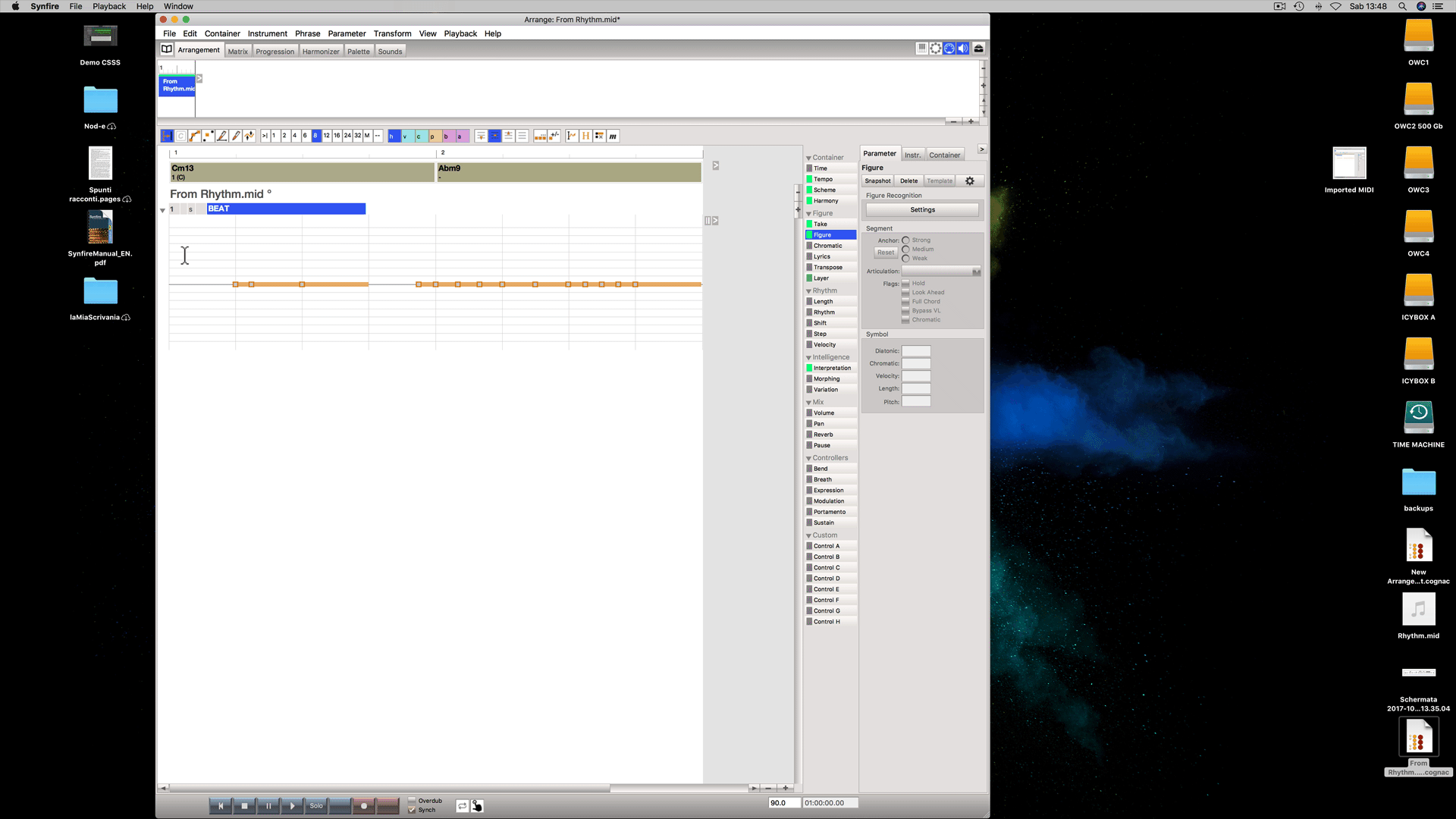
- adjust the melodic line and the Interpretation parameter to achieve a satisfactory result or at least something with a musical sense to start from.
That's all, more or less.
Sa., 28.10.2017 - 16:22 Permalink
Could this be useful further ? prevade-technique
Sa., 28.10.2017 - 17:33 Permalink
Yes, it could, thank you. Why are the links to Evenant broken?
To me one of the most intriguing parameters in Synfire is, quite obviously, Interpretation. Here is the same melody of my little test, this time superimposed to the built-in harmony template Angel Eyes. With and without interpretation.
interpretation_on.mp3
interpretation_off.mp3
So., 29.10.2017 - 11:03 Permalink
Links are broken, because this a course
So., 29.10.2017 - 15:00 Permalink
Cool! I'm working for about 2 years with synfire and did not yet notice this "Gestalt" feature. Imediately coming to my mind (but maybe it doesn't make sense):
Wouldn't it be great if you could extract and apply the "Gestalt" from a figure ? Why is it not available as "parameter" ?
So., 29.10.2017 - 15:52 Permalink
Hmm... assuming that “parameters” should always be sequences of numbers (or bytes), you should be able to drag, say, the Figure “parameter” on the Velocity parameter and get a Velocity profile that mirrors your melody. As such it works, for example, if you drag an active (green) Shift parameter on the Figure parameters: you get a nice flowing scale of pitches. All Synfire parameters are more or less interchangeable.
_Roberto
So., 29.10.2017 - 16:10 Permalink
I tested the interchangeability of Figure/Velocity and it did not worked as expected, I was wrong about that
So., 29.10.2017 - 16:34 Permalink
You can, though, swap Velocity <-> Shift (in case you feel the urge...) ;-)
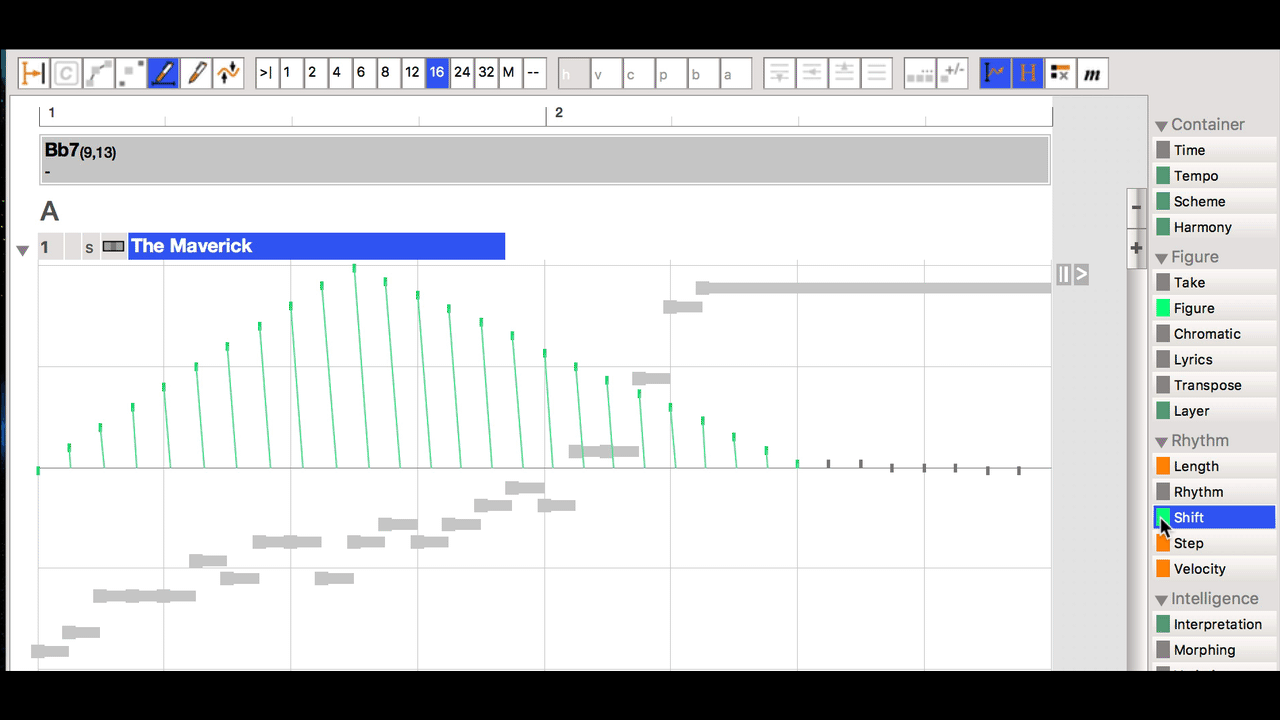
So., 29.10.2017 - 17:34 Permalink
Just another silly test.
I imported in Synfire one bar of CC#1 from Presonus StudioOne (as MIDI file). in Synfire I got this under the Modulation tab:
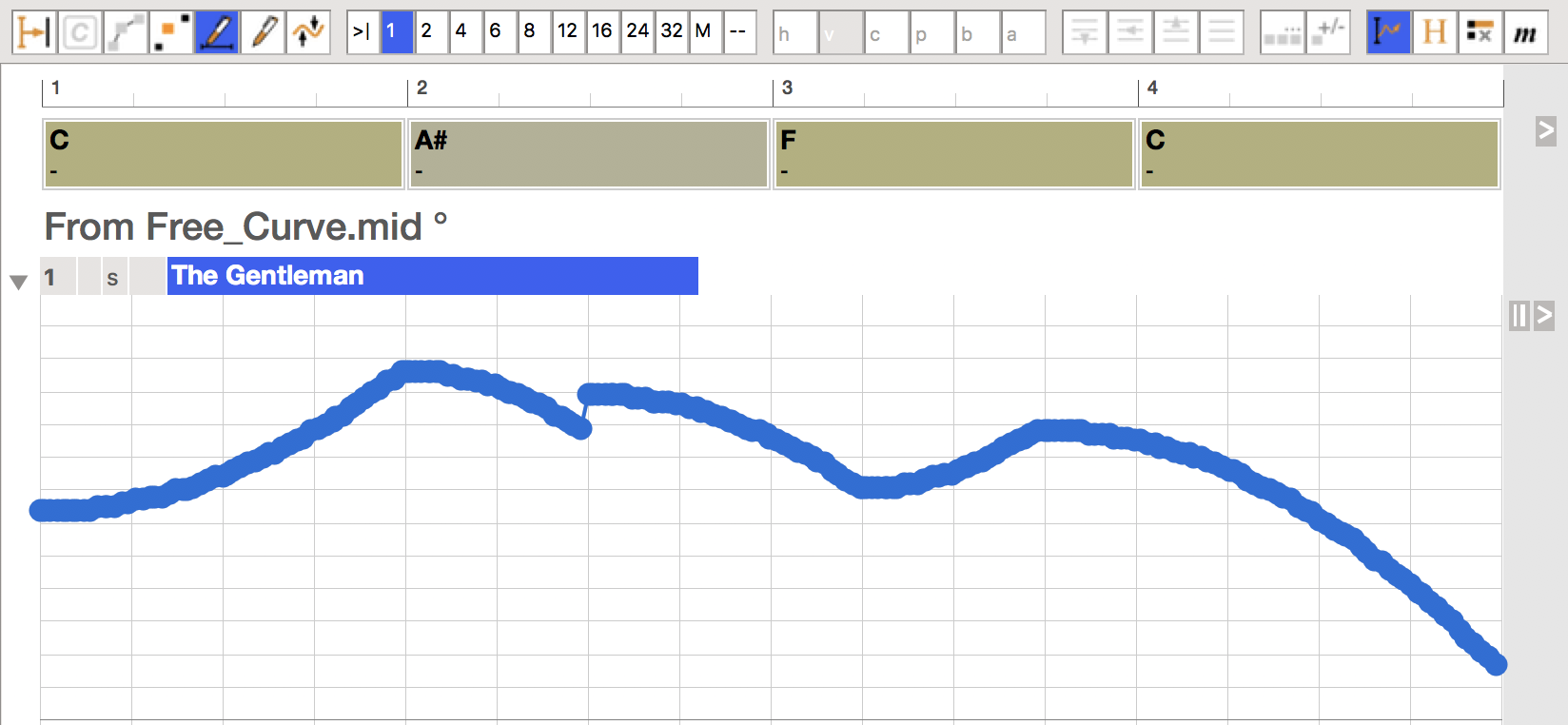
The I dragged Modulation on Figure tab and I got this:
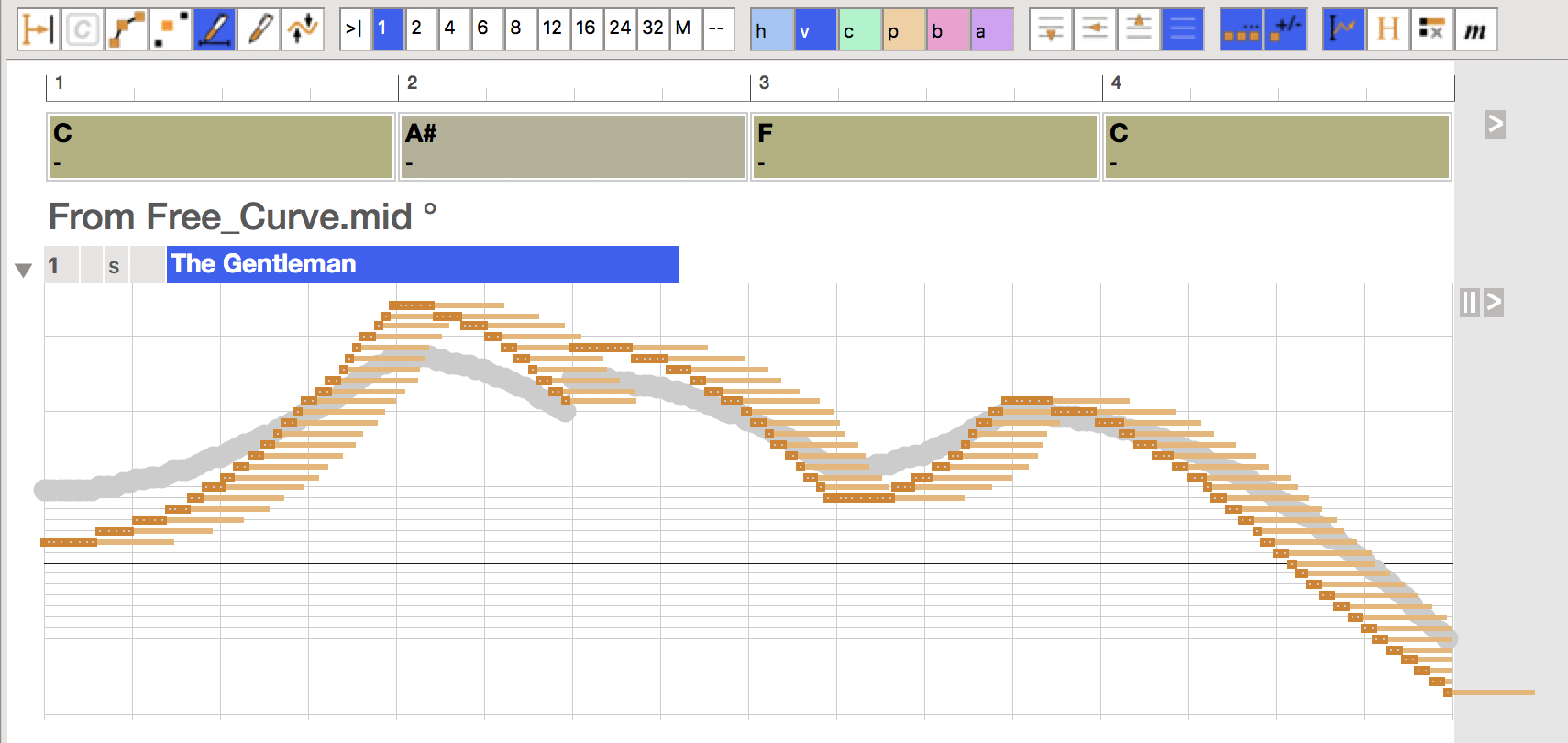
After cleaning and dropping repetitions, finally I got this Figure:

You can listen to it from the attached mp3.
At the moment I can't see how it can serve, but who knows... ;-)
from_free_curve_mid_64bit_.mp3
So., 29.10.2017 - 17:56 Permalink
There is a right click menu option 'extract velocity from figure' or something like that, which does the figure->velocity parameter transfer. It grabs the velocity of each note in the figure and creates the velocity parameters. So it isnt quite figure>velocity, but a bit more intelligent than that, rather than note value (ie pitch) it grabs the velocity. Other options include extract velocity from output. (all this is from memory so the wording might not be 100% correct).
So., 29.10.2017 - 18:19 Permalink
Right-clicking the Velocity tab you can select "Extract from figure", which indeed... extracts the velocities from the figure ;-)
So., 29.10.2017 - 18:29 Permalink
You get interesting results, even if not entirely predictable, even by copying the parameter Figure on the parameter modulation
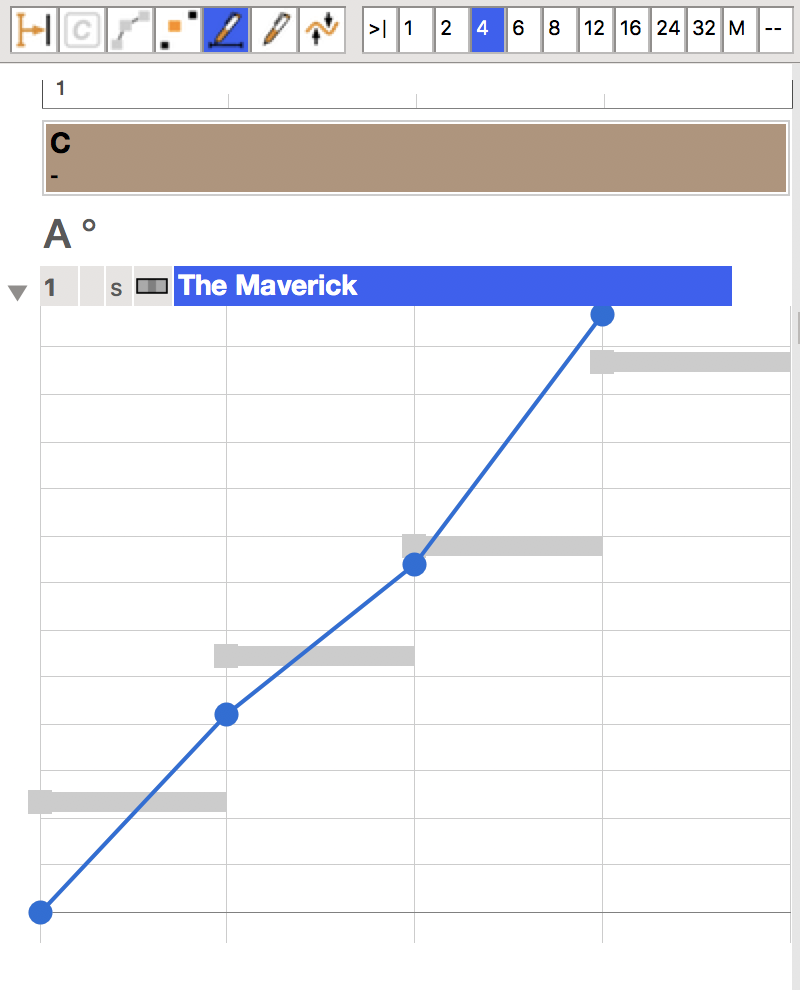
So., 29.10.2017 - 18:30 Permalink
It's a pretty esoteric software ;-)
So., 29.10.2017 - 18:34 Permalink
(the same if you copy/drag Figure -> Bend or to any other MIDI controller)
So., 29.10.2017 - 18:42 Permalink
[OT] This is our cat Spritz. His face is more or less as mine after a Synfire session
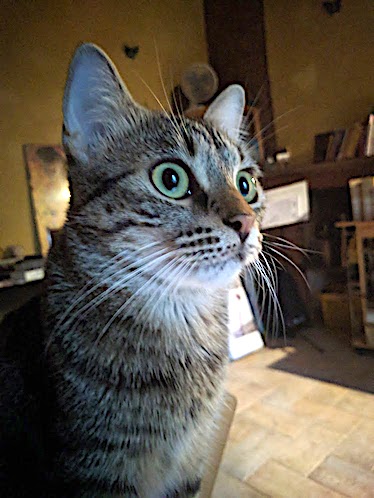
Mo., 30.10.2017 - 22:39 Permalink
RobertoD
In just the short time I took to read this commentI learned more how to use Synfire than I have in the past 2 years.Good job
Mo., 30.10.2017 - 23:29 Permalink
Glad to be of help ;-)
Do., 02.11.2017 - 09:07 Permalink
It's a pretty esoteric software ;-)
The seemingly magical interaction between parameters is merely a result of pure object-oriented design. Even we developers still find things that we didn't know were possible. Until we tried.
Thanks again for letting all users participate in your journey of understanding the depth of this powerful tool.




